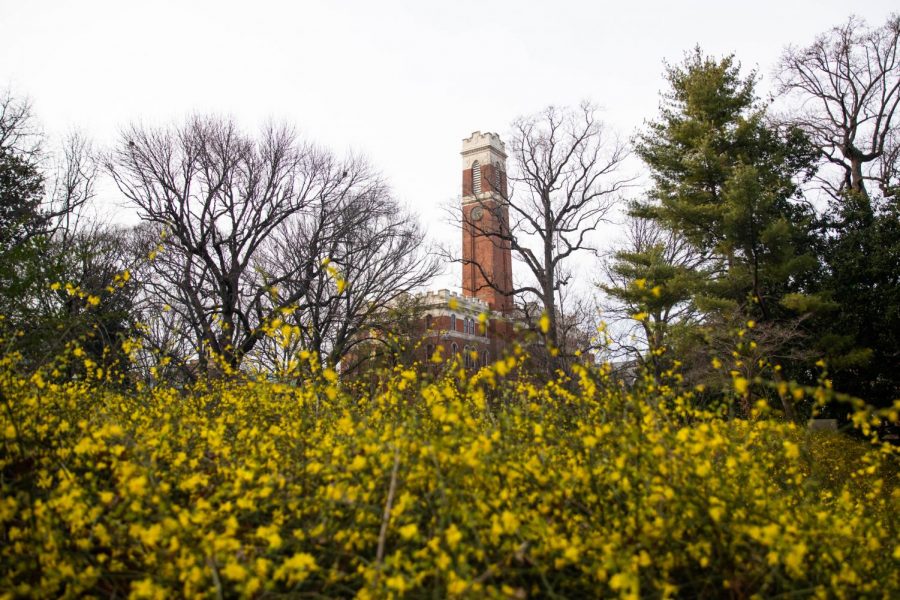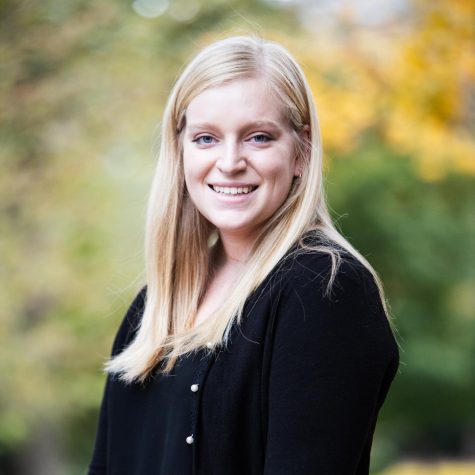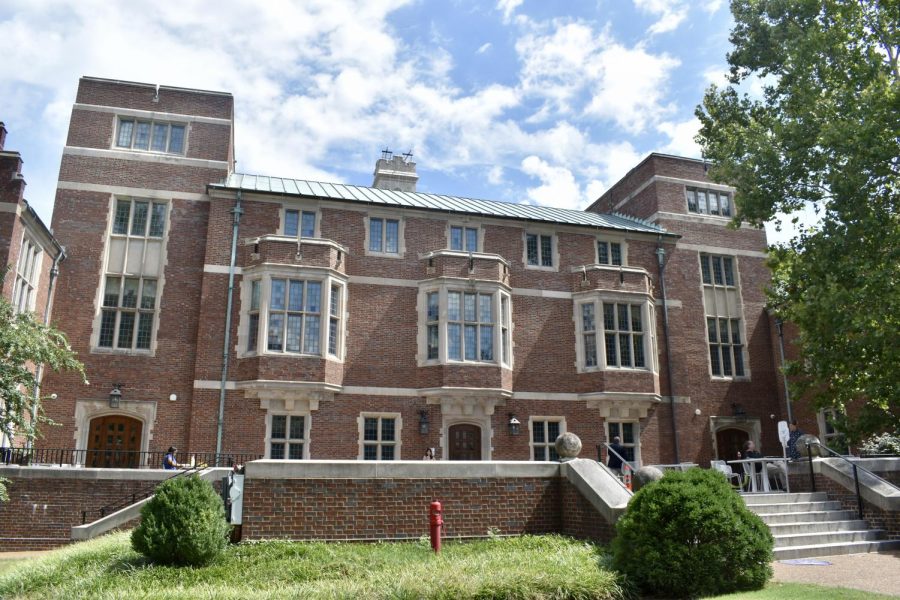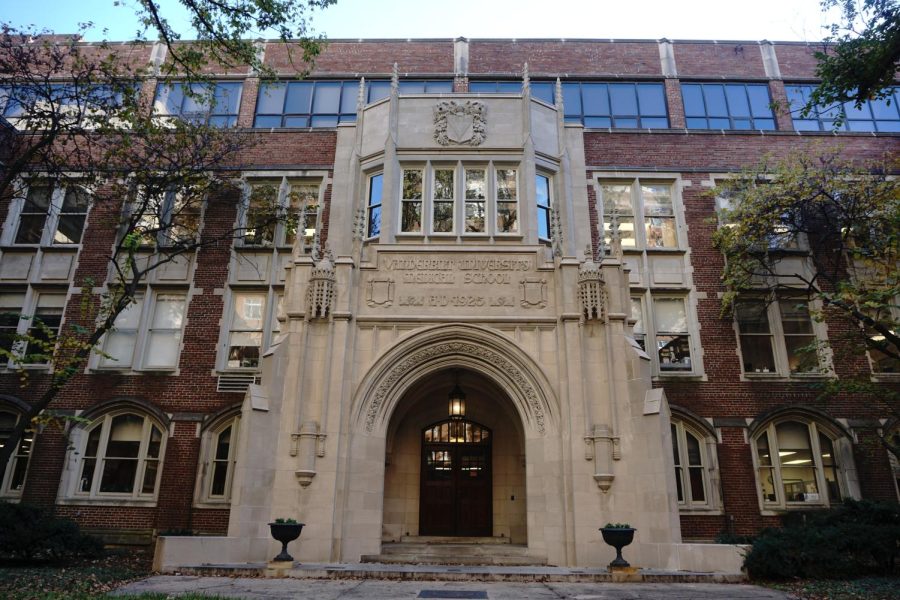As the novel coronavirus continues to disrupt higher education nationwide, Vanderbilt graduate students have been forced to contend with unprecedented levels of uncertainty regarding their academic, economic and personal futures.
Vanderbilt Graduate School administrators held two open listening sessions March 27 and April 1 to hear what students are most concerned about and work towards potential solutions. However, in an interview with The Hustler, Graduate School Dean Mark Wallace said that given the “decentralized” structure of the school, administrators are encouraging students to work with their mentors, departments and schools to craft individualized solutions.
Graduate Workers United (GWU), an organization dedicated to forming a labor union for graduate student workers, began circulating an open letter addressed to Interim Chancellor Susan Wente and the administration April 8.
The letter, which received over 670 signatures, calls for degree and funding extensions for one academic year, full coverage for COVID-19 and mental healthcare-related expenses, safety measures for essential graduate researchers and comprehensive summer hardship support for international students. As of Fall 2019, Vanderbilt has 2,245 students enrolled in Master’s and Ph.D. programs.
When asked about how the graduate school will respond to the petition, Wallace emphasized that the letter’s proposals reflect the problems students brought up during the listening sessions. He added that he is working closely with the Graduate Student Council (GSC) to address issues coming from every corner of campus and communicating with the deans of each college to solve them.
“I see my principle role as, I’m the advocate for the graduate student community,” Wallace said. “So I’m talking with each of the deans about the concerns that I’m hearing, and then helping them sort of shape the individual solutions that they’re going to create within their schools.”
GSC President Kelsea Best said she met with Arts and Science Dean John Geer April 21 and that they are still figuring out how to support students. She added that the GSC is going to keep having these conversations and trying to get answers.
Academic progress and timelines
Since all non-essential research lab activities were restricted as classes moved online March 16, many graduate students have had to reconfigure their research plans while balancing the challenges of taking and teaching classes remotely. Many graduate students’ academic progress has been disrupted by the closure of labs, libraries and fieldwork sites that in some cases were central to their ability to continue their research.
GWU is advocating for a universal one-year degree funding and timeline extension for Ph.D. candidates. This extension aims to alleviate the pressures of finishing research remotely, lost opportunities to complete essential fieldwork, and performance issues due to the stressors associated with digital education and coronavirus generally.
According to the graduate school’s website, “Ph.D. students can generally expect to receive teaching or research assistantships that pay all or part of tuition, medical insurance, and a supplemental income stipend ranging from $14,000 to $30,000 per year for five years.” In some cases, summer funding is not guaranteed as a part of the stipend package. Under normal circumstances, some advisors may be able to offer extended funding beyond the fifth year if they have a grant.
Best said that while a one year extension would be ideal, the GSC has been prioritizing getting some kind of extension for those who need it.
“Grad students are worried about the productivity expectations being placed on them right now. It’s increasing pressure, especially without a systematic response from the university yet,” fifth year Ph.D. candidate and GWU organizer Kelly Swope said. “We’re all wondering whether we’re going to have foreshortened times to complete our degree, and if we have foreshortened times, are we going to have to cram all of this work into just a several month period as soon as things get back to relative normal. I think the productivity expectations are a stressor right now.”
Swope, whose stipend is scheduled to end in July, said he supports the universal one-year extension because every graduate student, at every stage of their degree, will be affected by this disruption.
“Some of us are going to feel it sooner, those of us who are graduating soon, but those who are just behind us are going to feel it soon too,” Swope said. “They’re going to feel it in the lack of job opportunities, they’re going to feel it in feeling crunched to complete their degree really after having lost a semester if not a year’s worth of work during this time.”
Some of Vanderbilt’s peer institutions are taking action to relieve graduate students in a variety of different ways. For example, Yale announced April 22 that their graduate school will offer a 12-month funding extension for all graduate students and allow current seventh-year students to extend their Yale Health coverage in lieu of additional stipend funding. Yale also created at least 30 new post-graduate fellowships to support students seeking employment.
As of April 4, Duke has committed to providing summer employment for any enrolled and continuing Ph.D. student who needs it and doesn’t have 12-month funding. Harvard, Brown, Northwestern and others, like Vanderbilt, have not yet released any graduate student-specific degree extension policies or financial relief plans beyond hardship funding.
Every graduate student’s ability to stay on schedule with their degree depends on a variety of things, including their relationship with their advisors, program requirements and ability to continue research without access to a lab or campus resources. To support students who are graduating soon, Wallace said that the Assistant Dean of Career Development Ruth Schemmer has been meeting individually with students to help students manage their careers through this crisis.
“We really have to consider that every student’s situation is truly unique,” Wallace said. “My perspective on this is we really need to deal with these on an individual by individual basis, getting to understand exactly what the concerns of the student are in terms of progress and timeline, and then having them work with their mentors, with their departments, with their schools, to really try to craft an individualized solution that’s best for them.”
Graduate students’ financial wellbeing
As a result of the virus, many conferences that help graduate students build their resumes have been cancelled. Many universities have announced hiring freezes as a result of economic pressures. Students without summer funding or who are graduating into this recession are facing what could be months of economic hardship.
In the short term, Vanderbilt’s hardship fund and the allocation of CARES Act funds provide some financial relief for those students at the undergraduate and graduate level. However, Wallace said during the listening sessions, he was alerted to the lack of access graduate students had to the hardship funds.
To access the fund, students must show demonstrated need through FAFSA or CSS Profile financial aid applications. While students enrolled in master’s or professional degree programs are more likely to have filled out these forms to receive financial aid or federal student loans, Best said Ph.D. students are able to live off of their university-granted stipends and had never needed to take out additional loans or complete these forms.
Similarly, for graduate or professional students, CARES Act funding eligibility hinged upon having received federal student loans this spring, leaving many Ph.D. students unable to access the funding.
Wallace said that the Office of Financial Aid is now offering group and individual tutorials to help graduate students fill out these forms to become eligible for these hardship funds. Since then, he has heard of a number of students whose aid applications were approved after initially being denied due to their lack of a FAFSA form.
Some students expressed concerns about the magnitude of the aid; each student could potentially receive up to $500 from the hardship fund and up to $1,100 in CARES Act funding. Best said the GSC is advocating for raising the $500 hardship fund limit, or allowing students to apply for funding multiple times. International students in need of aid are particularly vulnerable because while the CSS Profile allows them to receive hardship grants, they’re ineligible for federal CARES support.
“Many international students that I’ve spoken to are expecting financial distress over the summer,” Swope said. “They’re expecting to have to meet rent burdens that they don’t typically meet, and $1,600 is going to help, but Nashville rent— that’s not going to cover it for the summer for a lot of people.”
COVID-19 related healthcare costs and the necessity of mental healthcare
Vanderbilt’s student insurance provider Aetna has waived costs for all diagnostic testing related to COVID-19. Treatment costs, however, will be charged according to the plan’s benefits. Wallace said that students have platinum level insurance plans, and that all COVID-related expenses would be covered.
The toll that coronavirus is taking on students’ mental health is also a chief concern for the administration, GSC and GWU. Best said that the GSC organized a mental health focused open listening session April 14, facilitated by the University Counseling Center, where they discussed how students are managing productivity expectations and coping with anxiety.
In addition to the listening sessions, Wallace said that the administration is working with the GSC to form a committee of students, faculty and staff to specifically address graduate students’ mental health concerns.
As a part of managing productivity expectations, Wallace recommended that mentors make an effort to reach out and support their students. Best also spoke to the importance of fostering a strong relationship with mentors, and how that can affect academic-related anxiety.
“I do think a lot of things come down at the graduate level to the relationship between the student and the advisor. It’s just a really, really important relationship, and the advisor has a lot of power and a lot of say over what their expectations are of a student, especially during these times,” Best said.
“I’m also lucky that my advisor is very understanding and cares a lot about my wellbeing and mental health, which I think a lot of advisors do, but not all. There’s a lot of things that on the personal level— from the type of research you’re doing, what stage you’re at in your research to just your relationship with your mentor— that can make a really big difference.”
Supporting international students
International students are facing an constantly changing immigration landscape, especially as the Trump administration has stopped issuing new green cards for 60 days and hinted at the possibility of extending the suspension based on the economic climate.
Wallace said the International Student & Scholar Services offices have been working with international students individually to help them find the best path forward depending on their situation.
Implications for higher education
Dean Wallace is optimistic about Vanderbilt’s future and the future of higher education in general, he said. Historically, graduate education and business schools have done well during recessions, which Wallace said in the longer term could cause positions in higher education to open up.
Wallace also mentioned the potential for growth in Vanderbilt’s master’s programs.
“We will probably, like with many schools, we’ll see a growth in our master’s programming. We’re not going to do this in a willy nilly way though,” Wallace said. “Really the way we develop master’s programming at Vanderbilt is where our academic areas of strength and trying to build programs specifically within those active academic areas of strength. And secondly, what’s the market demand? What is the market looking for in terms of master’s level programming?”
In December, the Arts and Sciences administration began to roll out plans to restructure some graduate school departments. As Provost of University of Chicago, incoming Chancellor Daniel Diermeier oversaw an expansion in master’s enrollment and shrinking doctoral programs.
For now, Wallace is just focused on keeping Vanderbilt’s graduate school running amid concerns regarding the spread of the novel coronavirus. Planning for virus-related contingencies, ranging from what happens in a full lockdown to returning to business as usual in the fall, takes up most of his day lately, Wallace said. Even in the midst of all of this uncertainty, he is confident in the graduate school’s mission to train leaders for academic and nonacademic positions.
“The value of our degree is just going to continue to grow as we move out of this crazy COVID period into whatever the new reality brings,” Wallace said. “I think there’ll be even more recognition of what training at a place like Vanderbilt will provide for our students.”
Correction: This article has been updated April 26 1:07 p.m. to accurately reflect the number of graduate students at Vanderbilt that Graduate Workers United’s petition represents.


















